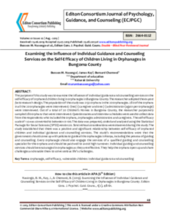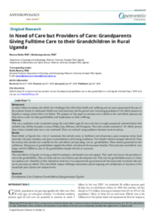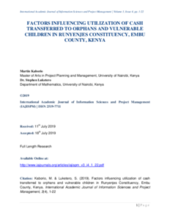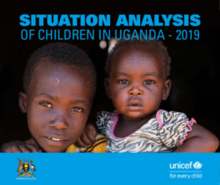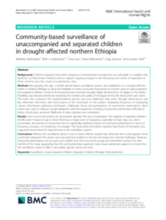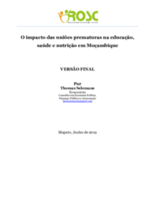Displaying 221 - 230 of 665
This article examines the challenges encountered by, and the opportunities available to, young adults as they transition from informal kinship-based foster care to independent living in the Bikita District of Zimbabwe.
The purpose of this study was to examine the influence of individual guidance and counselling services on the self-efficacy of orphaned children living in orphanages in Bungoma County, Kenya.
The special issue of Emerging Adulthood titled “Care-Leaving in Africa” is the first collection of essays on care-leaving by African scholars. This article, coauthored by scholars from North and South, argues in favor of North–South dialogue but highlights several challenges inherent in this, including the indigenizing and thus marginalizing of African experience and scholarship and divergent constructions of key social concepts.
This study sought to examine the psychosocial challenges facing children in residential childcare facilities in the Mashonaland Central province, Zimbabwe.
The purpose of this paper is to ascertain care available to the rural elderly persons and their role as carers for their grandchildren and implications on their wellbeing.
The sole purpose of the study was to determine the factors influencing utilization of cash transferred to orphans and vulnerable children in Runyenjes Subcounty, Embu County. The study concluded that demographic characteristics had the greatest effect on the utilization of cash transferred to orphans and vulnerable children, followed by frequency of cash transferred then attitude of beneficiaries while home factors had the least effect to the utilization of cash transferred to orphans and vulnerable children.
This situation analysis explores multidimensional poverty in Uganda, including an examination of both material and social needs of children – including health care and education, a social and family life, clean and safe drinking water, housing that is not squalid and overcrowded, adequate clothing, and regular meals with sufficient and nutritious food.
In this study, a mobile phone-based surveillance system was established in a drought-affected district in northern Ethiopia to assess the feasibility of using community focal points to monitor cases of unaccompanied and separated children.
This study aimed at investigating specifically whether institutionalization impacts negatively children’s psychological adjustment defined in terms of externalizing behavior, internalizing behavior and self-esteem and whether having living parents has additional influence. Ninety-five institutionalized and 82 not institutionalized children in Rwanda, aged 9 to 16, participated in the study.
Este estudo sobre o impacto das uniões prematuras na educação, saúde e nutrição, da iniciativa da Rede da Sociedade Civil para os Direitos da Criança (ROSC) e realizado no âmbito das actividades da Coligação para a Eliminação dos Casamentos Premat

